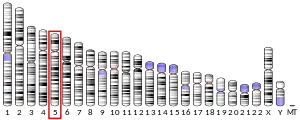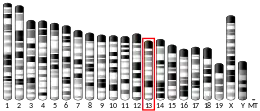| ZBED3 | |||||||||||||||||||||||||||||||||||||||||||||||||||
|---|---|---|---|---|---|---|---|---|---|---|---|---|---|---|---|---|---|---|---|---|---|---|---|---|---|---|---|---|---|---|---|---|---|---|---|---|---|---|---|---|---|---|---|---|---|---|---|---|---|---|---|
| Identifiers | |||||||||||||||||||||||||||||||||||||||||||||||||||
| Aliases | ZBED3, zinc finger BED-type containing 3 | ||||||||||||||||||||||||||||||||||||||||||||||||||
| External IDs | OMIM: 615250 MGI: 1919364 HomoloGene: 12442 GeneCards: ZBED3 | ||||||||||||||||||||||||||||||||||||||||||||||||||
| |||||||||||||||||||||||||||||||||||||||||||||||||||
| |||||||||||||||||||||||||||||||||||||||||||||||||||
| |||||||||||||||||||||||||||||||||||||||||||||||||||
| |||||||||||||||||||||||||||||||||||||||||||||||||||
| |||||||||||||||||||||||||||||||||||||||||||||||||||
| Wikidata | |||||||||||||||||||||||||||||||||||||||||||||||||||
| |||||||||||||||||||||||||||||||||||||||||||||||||||
Zinc finger BED domain-containing protein 3 also known as axin-interacting protein is a protein in humans that is encoded by the ZBED3 gene.[5]
References
- 1 2 3 GRCh38: Ensembl release 89: ENSG00000132846 - Ensembl, May 2017
- 1 2 3 GRCm38: Ensembl release 89: ENSMUSG00000041995 - Ensembl, May 2017
- ↑ "Human PubMed Reference:". National Center for Biotechnology Information, U.S. National Library of Medicine.
- ↑ "Mouse PubMed Reference:". National Center for Biotechnology Information, U.S. National Library of Medicine.
- ↑ "Entrez Gene: Zinc finger, BED-type containing 3".
Further reading
- Hayward A, Ghazal A, Andersson G, Andersson L, Jern P (2013). Robinson-Rechavi M (ed.). "ZBED evolution: repeated utilization of DNA transposons as regulators of diverse host functions". PLOS ONE. 8 (3): e59940. Bibcode:2013PLoSO...859940H. doi:10.1371/journal.pone.0059940. PMC 3606216. PMID 23533661.
- de Miguel-Yanes JM, Shrader P, Pencina MJ, Fox CS, Manning AK, Grant RW, Dupuis J, Florez JC, D'Agostino RB, Cupples LA, Meigs JB (Jan 2011). "Genetic risk reclassification for type 2 diabetes by age below or above 50 years using 40 type 2 diabetes risk single nucleotide polymorphisms" (PDF). Diabetes Care. 34 (1): 121–5. doi:10.2337/dc10-1265. PMC 3005447. PMID 20889853.
- Chen T, Li M, Ding Y, Zhang LS, Xi Y, Pan WJ, Tao DL, Wang JY, Li L (Mar 2009). "Identification of zinc-finger BED domain-containing 3 (Zbed3) as a novel Axin-interacting protein that activates Wnt/beta-catenin signaling". The Journal of Biological Chemistry. 284 (11): 6683–9. doi:10.1074/jbc.M807753200. PMC 2652294. PMID 19141611.
- Voight BF, Scott LJ, Steinthorsdottir V, Morris AP, Dina C, Welch RP, Zeggini E, Huth C, et al. (Jul 2010). "Twelve type 2 diabetes susceptibility loci identified through large-scale association analysis". Nature Genetics. 42 (7): 579–89. doi:10.1038/ng.609. PMC 3080658. PMID 20581827.
This article is issued from Wikipedia. The text is licensed under Creative Commons - Attribution - Sharealike. Additional terms may apply for the media files.



